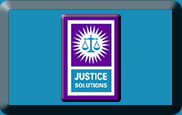

Conducting a Basic Victim Needs Assessment: Issues to Consider
Really Basic Issues
- Housing (both emergency/temporary and long-term, and possible re-location).
- Transportation (personal automobile or access to and payment for public transportation)
- Food for self and family.
- Clothing.
- Employment and/or job training.
- Education (such as school attendance).
- Assistance with basic issues relevant to their children (i.e., school, child care, medical, etc.)
Assistance and Services
- Crisis intervention.
- Crisis counseling.
- Emergency financial assistance.
- Services to enhance protection.
- Home safety check with physical reinforcements (such as locks).
- Safety planning.
- Advocacy or intervention with employers.
- Development or enhancement of social support system.
- Physical health and medical issues.
- Mental health counseling (for self and family).
- Support group participation.
- Legal advocacy.
- Referrals for social services.
- Assistance needed with immigration status.
- Possibly alcohol or other drug counseling.
- Information regarding what to do in cases of emergencies.
- Translation or interpreter services.
- Follow-up contact (as needed and/or upon request).
Implementation of Rights
- Provision of information about victims' rights.
- Information about and assistance with filing a victim compensation claim.
- Information about protection rights.
- Notification of the status and location of the offender.
- Information about participation in key justice proceedings.
- Accompaniment to court-related and other hearings involved in the case.
- Information about and assistance with completing a pre-sentence investigation (PSI) interview and/or victim impact statement.
- Information about and assistance with documenting restitution.
- Notification of the outcome criminal or juvenile justice proceedings.
- For cases involving incarceration or detention: Notification of the location of the offender and any movement (including release or escape)
- For cases involving community supervision: Input into conditions of community supervision; the right to protection (including assistance with obtaining protective orders); the right to financial/legal obligations owed by the offender (such as child support, restitution, payment of house payments or rent, etc.); the right to be notified of any violations, be given input into any violation hearings; to be notified of the outcome of any violation hearings; and to be provided with contact information for the agency/ professional who will be supervising the offender.
Written by Anne Seymour, Senior Advisor to Justice Solutions (2002). Washington, D.C.: Justice Solutions
![]()
To Search The Justice Solutions Web Site:
![]()
For comments or concerns regarding this web site, please contact:
![]()
Copyright © 2011.
Justice Solutions.
All Rights Reserved.
Last Modified:
April 2, 2011
![]()
